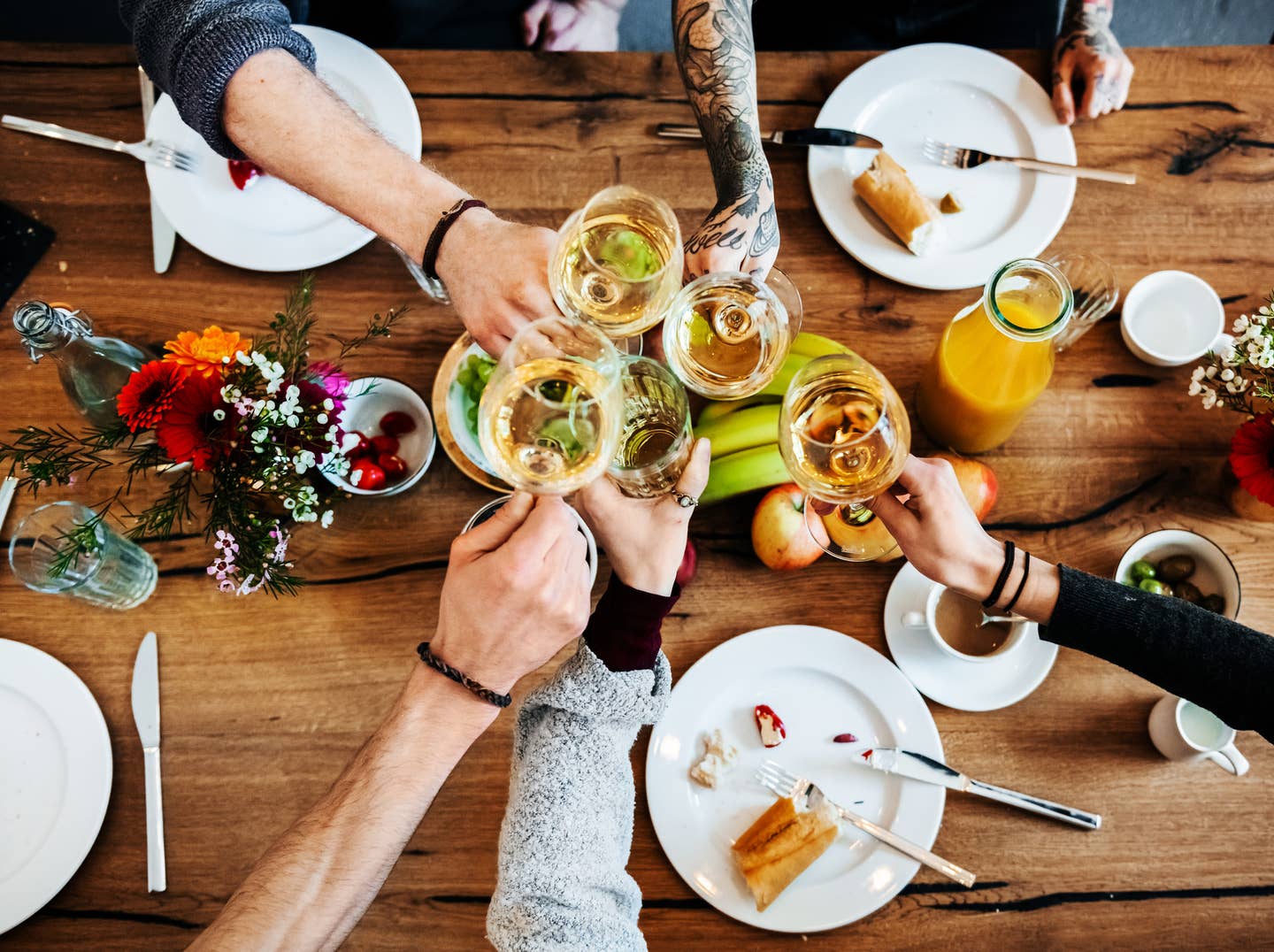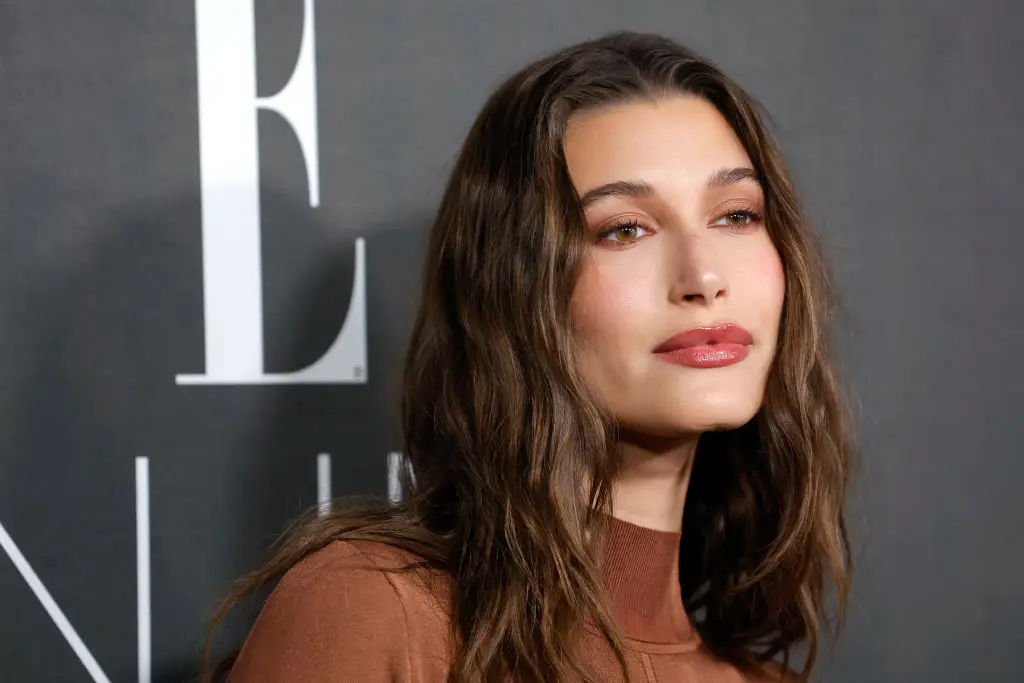
Eric Adams Is NYC’s First Vegan Mayor. He Shares His Health Journey
Eric Adams is the new Mayor-elect of New York City and everyone is talking about how he is only the second black person to hold that office. But he is also a first: The first Mayor of New York to be a self-proclaimed vegan. He came to this healthy way of eating through a harrowing health experience and shared his personal journey with The Beet.
We interviewed him after reading his book about ditching meat and dairy and turning his back on fast food, which he compares to soul food and even the foods of slavery. He wrote Healthy at Last: A Plant-Based Approach to Preventing and Reversing Diabetes and Other Chronic Illnesses, to try to get others to eat more plant-based foods as well. With a focus on public health, Adams wants to make New York City the healthiest place to live in the entire country.
One morning, Eric Adams remembers waking up, 56, as the new Brooklyn Borough President and blinking to try to see. He was suddenly nearly blind in one eye and completely blind in the other. Rushing to the doctor, he was told that his blood glucose level was 17, three times higher than normal and that he had full-blown diabetes. He was shocked since he was neither obese nor unhealthy looking. But in the 22 years that he had spent as a police officer, he had indulged his love of soul food, fast food, and all things fried to "comfort" himself.
His doctor put him on insulin and told him he would have to take medicine for the rest of his life. That began what would become an epic journey of research, health and diet information gathering and self-healing that started and ended with a wholesale change in his diet. Along the way, Adams sparked his girlfriend and mother to both go plant-based, and his mother, also diabetic, got off her meds. Now he wants to spread the word to the rest of the world.
Healthy At Last is an inspiring tale of how to change your life and help others do it, too
Adams has been on a health journey, from overweight and nearly blind, and believing that "sugar" (type 2 diabetes) runs in his family, to changing his diet, going plant-based, learning to cook, and researching where this idea came from that "soul food" has to be part of one's identity as a Black American. He had been raised on fried chicken and chitlins, mac and cheese, fried fish, and collard greens soaked in oil and served with ham, and pork ribs.
As Adams finds his way to a 35-pound weight loss, getting off the diabetes meds and helping his mother do the same, he learns that soul food, and its modern-day descendant, fast food, comes from a time hundreds of years ago when slaves were given scraps and undesirable parts of the farm animals that the plantation owners would not eat. To survive, they learned to make these cast-offs into tasty dinners. What was once a means of survival–eating fried foods heavy in oil and unhealthy animal fat– today threatens the very survival and future health of Black Americans who eat this southern-style food, leading to diabetes, obesity, hypertension, heart disease, cancer, and other chronic health complications, which Adams himself knows too well.
Having changed his health fate, Adams now brings readers along with him in the excellent and honest book, Healthy At Last. Adams, well known as the popular Brooklyn Borough President, past police officer, and the Mayor-Elect of New York tells the story of how to change one's future fate, by stepping off the treadmill of tradition and instead committing to plant-based eating.
Adams is an adroit storyteller and his book reads like a movie more than a treatise, but his arguments layout in such a powerful arc of storytelling that you can envision the traditions and cooking of generations gone by, and how those traditions have led Americans to a place where food is an emotional connection, a cultural celebration, and yet a trap that leads to believing that health troubles we face are not to be avoided-- and yet we can make the changes we need, to be healthier. It all starts with committing to a new way of eating.
In Healthy At Last Adams explains you can honor your ancestry with new ingredients:
"Here's a secret about eating plant-based: You can still honor your heritage and give up fried fish. You can honor Mama and grandma and eat tofu. You can make meat-free crab cakes, crispy seitan chicken legs, mac and chickpea-cheese with nutritional yeast, biscuits, and began gravy. You can make Granddad's corn muffins with ground flaxseeds instead of eggs. Jambalaya with tempeh instead of sausage," he writes.
"Remember you can honor the best part of soul food while throwing away the worst parts. you can honor our ancestors without eating what they were forced to eat. We are honoring their sacrifice by returning to our roots and reimaging soul food the way it was always meant to be: Plant-based."
Adams' lesson is clear: that to honor your past you need to be healthy from now on and to do that, the first thing is to eat healthier, which he defines as a whole-food plant-based diet.
The Beet caught up with Adams at lunch, in between a busy day of appointments. Here is what he had to say about bringing plant-based eating to his constituents, in Brooklyn, NYC and beyond:
The Beet: It must have been shocking to learn you were diabetic, out of the blue.
Eric Adams: I had no idea at all that I was diabetic. When I lost my vision in my left eye and partly in my right. I was experiencing tingling in my hands and it was nerve damage at the same time. It's amazing but doctors basically expect that by a certain age, your body is supposed to break down. It doesn't have to be that way.
The Beet: Was it hard to go plant-based? In the book, you tell about how you were raised on soul food, loved fast food.
EA: The first week was hard. Meat and dairy, sugar, and processed food is as addictive as drugs. That was the hard part. It took me about 2 weeks until my palate changed and then I learned how to cook. I decided this is not a diet, it's a lifestyle change. And I learned about spices and how to combine things to taste great.
The Beet: Learning to cook is impressive. So you got good at it?
EA: It's really easy when you think about it. As Borough President, I eat out a lot... It was really about adjusting my life to this new way of living. I basically don't go out and have pizza or if I do go out, we find a vegan pizza shop. Happy Cow is a great place to find vegan restaurants. So now, if we go out I find places that are vegan. I entertain a lot and make my own pizza dough out of cauliflower and flax flour. I've had to learn how to eat a new way.
We really have to commend our relatives and ancestors for doing what we do as human beings: Adapting for survival. But adaptation for survival now means changing again. There is nothing natural about becoming diabetic and dying in your 50s... or getting Alzheimer's in our 80s or 90s.
I am so proud of my mother. She changed her diet and went off her diabetes medication after two months. She is truly my inspiration. And now I want to help others do it too. It's possible!
In Healthy At Last I show that that chocolate cake is more than food. We connect food with people and emotions. My dad used to give me things to comfort me if I had a bad day at baseball, so now I connect that food to comfort. We all do this.
Some of that we need to fully understand in America that slim is that if you are on the standard American diet, the poison of that diet is going to manifest itself in different ways in diff people. Some people are going to weight, and some people are going to get depression, and some people are going to have heart disease. Not everyone is going to have the same symptoms, but trust me, you can't eat a diet of over-processed food, and added sugar and meat without it manifesting itself in some way.
The Beet: How do we help those who live in "Food Deserts" with limited access to healthy food and produce?
EA: We need to be mission-driven when it comes to access to healthy food. The first thing we must do is embrace the power of food and health. Right now we are dealing with a medical crisis and that's also partly food-related, or lifestyle-related since those who suffer the worst symptoms of COVID-19 are also often dealing with obesity and diabetes, and other chronic illnesses that are related to diet and lifestyle choices.
I have no power to decide what you put on your grill. But I do have the power to decide what we are feeding our children in schools and what patients get fed in hospitals and what prisons feed the incarcerated population in New York City.
We can be mission-driven and make sure stores carry lettuce, kale, and produce. Let's incentivize local stores to carry those items. And we can help people see the hidden powers of the healthy items that are already in those bodegas ... like dried lentils and rice and beans. Here is the prescription you are going to write: Find healthy items wherever you can.
The Beet: There is a perception eating plant-based is expensive. What is the reality? Isn't plant-based food inherently cheaper than meat? One study said you can save $23 a week if you don't add meat to your grocery cart.
EA: Yes. Some of the countries where food has been traditionally plant-based are healthy on rice and beans, vegetables and fruit, legumes, whole grains and very littl emeat. But when you look at some of these countries [that were plant-based for centuries] it's amazing what happens when the American diet comes in, and very quickly they become unhealthy. Even in Hawaii, which has been a healthy state for generations, with a tradition of eating some of the most healthy foods grown locally, the way they have indoctrinated Spam into society, and now people who eat that [fatty meat] and are getting unhealthy. Here was have a state with some of the most healthy vegetables, fruits, and food traditions, and they are going to be unhealthy if they continue to incorporate habits from the mainland.
When you see the fast-food chains popping up all over, like Popeyes and KFC and McDonald's... I know that when it comes to feeding our kids, we can do some much better.
The Beet: But when Mayor Bloomberg tried to tax big super-sized sugary drinks people got upset and wouldn't stand for it. So what's the answer?
EA: There is a combination of things that we can do. We can learn from what Bloomberg attempted to do. There must be a grassroots, or from the ground-up effort. If we start showing our young people in schools what is healthy and show them nutrition-based learning, and if we show them the illness that their families are suffering from, and instead teach them about choosing healthy snacks, that is one way. Once we start leading the way with healthy snacks in vending machines in schools and teaching kids to eat better, like Meatless Mondays that started in Brooklyn and then expanded to the entire City school system, that's one way to start. Then they can show their parents what to eat.
In addition, we were able to get the city to stop purchasing processed meats. That was big! Also, we are working to bring healthy plant-based foods to serve in our hospitals and correctional facilities. These are all steps on the way to a healthier population and city.
The Beet: So are you running for Mayor? Can we announce it right here right now?
Eric: We are 85 percent there. One thing for sure is that New York City is going to be one of the most healthy cities in the entire country. New York shares ideas, not only in the country but in the world. So when we embrace plant-based food, it's important that we do things in the right way.
The Beet: Love that. What is your personal favorite snack?
EA: Nice frozen dessert, of bananas, blueberries, freshly made PB, and chopped up fruit. I put it in a Ninja and its smooth and satisfies your palate. You can eat sweet healthy foods.
The Beet: COVID-19 has hit the Black community hardest. How would you help people try to be their healthiest in the midst of a pandemic?
EA: This has been a terrible time and even with the pandemic and everything else that is going on, the reality is that we can make individual efforts to change our lifestyle, and try to eat healthily, get exercise and alter our chances of being healthier even if we are unlucky enough to catch the virus. The question is what are you willing to commit to? You can make these changes if you want to. It's in your power to eat healthier, no matter what your past habits or your family's traditions.
The Beet: And we are so happy to see that you are sticking with your healthy ways and keeping the weight off.
EA: Yes I have kept off the weight. I feel really feel good and at a comfortable weight for me. When you eat healthily, your body takes a new shape. I tell people, you can have that body you know is inside you–it's ready to come out. Your body wants to be healthy. Just get out of its way. It doesn't matter how old you are. It doesn't matter if you had a bad time in the past when you ate too much. You can do it and let yourself be healthy from now on. That's what I want people to learn from Healthy At Last.
Eric Adams shares his favorite Chipotle Mac 'N' Cheese recipe from Healthy at Last: (Page 161 from Megan Sadd, author of 30-Minute Vegan Dinners: 75 Fast Plant-Based Meals You're Going to Crave and star of her website and video channel, Carrots & Flowers.
"Soak the cashews for 4 hours or overnight to soften, then drain. you can also boil the cashews for 10 minutes if you're short on time."
Chipotle Mac 'N' Cheese
Ingredients
- 2 cups brown rice pasta shells
- 1/4 cup soaked cashews
- 1/4 cup hemp seeds
- 1/4 teaspoon ground chipotle powder
- 1 tablespoon tomato paste
- 1/2 teaspoon apple cider vinegar
- 1 teaspoon agave nectar
- 3 tablespoons tapioca flour
- 2 tablespoons nutritional yeast
- 1 teaspoon smoked paprika
- 3/4 teaspoon salt
- 1/2 cup cooked vegan bacon, finely chopped (optional)
- 1/3 cup gluten-free panko crumbs
- 1/2 cup vegan cheddar shreds (optional)
- 2 tablespoons finely chopped chives, to garnish
Instructions
- Preheat oven to 425 degrees Fahrenheit. Cook the pasta in a pot of boiling salted water for 8 minutes, then drain and set aside.
- Combine the soaked cashews, hemp seeds, chipotle powder tomato paste, apple cider vinegar, agave nectar, tapioca flour, nutritional yeast, paprika, salt, and 1 1/2 cups of water in a high-speed blender. Blend on high for 2 minutes until smooth and creamy.
- Heat a saucepan over medium-high heat. transfer the cashew mixture to the hot saucepan. begin stirring right away, scraping the sides and bottom of the pot to prevent sticking. Stir for 2 to 3 minutes, or until the lumps are mostly gone, then add the cooked pasta to the saucepan. Add the vegan bacon if using and mix well, to combine.
- Transfer the pasta to a light-oiled 8 x 8-inch baking dish. Top with the panko crumbs and vegan cheddar shreds, if using. Bake until the top is nicely brown, 8 to 10 minutes. remove from the oven and sprinkle with the chives. Let cool for 3 to 5 minutes before serving.
Excerpted with permission from Healthy at Last: A Plant-Based Approach to Preventing and Reversing Diabetes and Other Chronic Illnesses by Eric Adams (Hay House Inc., October 13, 2020.
More From The Beet






